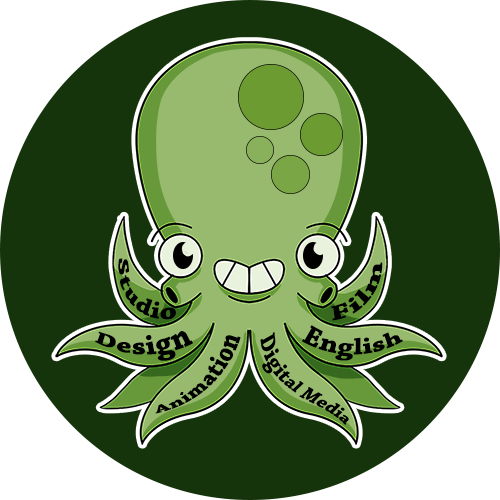English
- General Info
- Junior English 3
- Senior English 4
- Resources
- About Instructor
Instructor: Jason Greco
Email: Jason.Greco@freestyleacademy.rocks or Jason.Greco@mvla.net Voicemail: 650-940-4650 x0092
How does English at Freestyle compare to English at MVHS / LAHS?
Freestyle English builds the same core skills (e.g. close reading, academic writing, discussion, presentations, and research) but students demonstrate those skills through project-based work tied to media production and authentic audiences. We write for publication, create pitches, and build work for public exhibitions and portfolios. Instead of unit tests and essay cycles anchored to a single book list, Freestyle students repeatedly synthesize writing, visual thinking, and various forms of research in assignments such as magazine articles (the current Junior Documentary project), collaborative storytelling products (such as the current Senior Worldbuilding project), reflective essays, literary and rhetorical analyses, humor writing, short stories, poetry, creative nonfiction, personal essays, proposals, presentations, and portfolios. In short, we offer a more eclectic, creativity-focused English experience. Check out our galleries.
Junior Projects |
||||
| Class |
Conceptual
|
Visual Narrative
|
Documentary
|
Explorations
|
|---|---|---|---|---|
| English (1st required class) |
Who I Am (As a Writer) Reflection + SFMOMA Reflection Video |
Flash Fiction |
Sem 1: Presentation of Photography + Source Material Sem 2: Research-based Magazine Article |
Poetry, Who I Am Now (As a Writer) Reflection, Presentation of Self-Taught Media Skill |
| Digital Media (2nd required class) |
Computer Basics, Video Production, Photography, Web Development, Photo Blogs, Music Recording and Editing |
Coding for Web, Illustration Production, Magazine Publication, MIDI Music Composition |
||
| Design (3rd elective class) |
Photography, Conceptual, Photoshop |
Illustrated Creatures & Portrait Photography |
Documentary Book |
Explore a Topic of Your Choice |
| Animation (3rd elective class) |
Phenakistoscope Wheels, FlipBooks, Zoetrope Animations, Stop Motion Animations |
Lip Syncing, Puppet Character Bios, Poses, Walk Cycles, and Mood Scenes |
Animated Documentary |
Explore a Topic of Your Choice |
| Film (3rd elective class) |
Experimental Film |
Storyboards, |
Documentary Film |
Explore a Topic of Your Choice |
Senior Projects |
||||
| Class |
Reflections
|
Narrative Perspectives
|
Various, Zenith, Showcase & Exhibition
|
|
| English (1st required class) |
SFMOMA Art Curation + Personal Essay |
Worldbuilding: Poetry + Research Presentation |
Worldbuilding: Collaborative Story Treatment + Pitch Presentation Humor & Satire: Rhetorical Analysis of a Work of Humor + Performance/Recording |
|
| Digital Media (2nd required class) |
Personal Mandalas, Text Animations, HTML/CSS/JavaScript, Motion Graphic Animations, Image Compositing |
Music Recording and Mixing, 3D Layered Art, 3D Video Production, Personal Stationery, Senior Portfolio, & Showcase |
||
| Design (3rd elective class) |
PSAs |
Movie Posters/Book Jackets, |
||
| Animation (3rd elective class) |
3D Animation Overview, 3D Environment modeling and texturing, Digital Sculpting, 3D Character Design |
3D Animation: Keyframe Animation and Motion Capture, Action-Reaction Scene |
||
| Film (3rd elective class) |
Video Essay |
Narrative 2 Film |
||
Expected School-wide Learning Results:
21st CENTURY SKILLS
To prepare students to live, learn, and work successfully in today's knowledge-based digital society, our emphasis at Freestyle will be on developing:


- Visual Literacy - the ability to interpret, use, appreciate, and create images and video using both conventional and 21st century media in ways that advance thinking, decision making, communication, and learning.
- Technological Literacy - knowledge about what technology is, how it works, what purposes it can serve, and how it can be used efficiently and effectively to achieve specific goals.
- Creativity - the act of bringing something into existence that is genuinely new, original, and of value either personally (of significance only to the individual or organization) or culturally (adds significantly to a domain of culture as recognized by experts).
- Self Direction - the ability to set goals related to learning, plan for the achievement of those goals, independently manage time and effort, and independently assess the quality of learning and any products that result from the learning experience.
- High Productivity - the ability to produce intellectual, informational, or material products that serve authentic purposes and occur as a result of students using real-world tools to solve or communicate about real-world problems. These products include persuasive communications in any media (print, video, the Web, verbal presentation), synthesis of resources into more useable forms (databases, graphics, simulations), or refinement of questions that build upon what is known to advance one's own and others' understanding.
- Teaming and Collaboration - cooperative interaction between two or more individuals working together to solve problems, create novel products, or learn and master content.
- Social and Civic Responsibility - the ability to manage technology and govern its use in a way that promotes public good and protects society, the environment, and democratic ideals.
- Risk Taking - the willingness to make mistakes, advocate unconventional or unpopular positions, or tackle extremely challenging problems without obvious solutions, such that one's personal growth, integrity, or accomplishments are enhanced.
What Is Expected From The Student
Assessment and Grading:
Quarter grades will be determined on the basis of performance on projects and classwork.
*Please note: Only semester grades appear on transcripts.
For a breakdown of grading and late policies, see the class syllabus:
- Junior English
- Senior English
- Digital Media 1
- Digital Media 2
- Animation 1
- Animation 2
- Design 1
- Design 2
- Film 1
- Film 2
Grade Book Update Policy:
Grades may be viewed 24/7 through individual online accounts on Canvas and/or Aeries/SIS.
Daily Assignments:
Daily assignments are determined by tasks needed to achieve project goals. Students are responsible to check assigned tasks and project goals on Canvas and work toward achieving those tasks and goals.
Attendance:
Attendance will be taken each day, each class period. Attendance will be documented if the student was present or not in a class. You have been enrolled into a Period 9 Supervised study class - which is for attendance purposes only. Note: Students may receive a failing grade "F" in a class where they accumulate 15 or more unexcused absences.
Make Up Work
Absent students are allotted the same number of absent class days to complete assignments. If a student is absent for extended periods of time, it is the student's responsibility to consult with instructor for make-up work.
Classroom Norms
- Use appropriate language, dress, and behavior.
- Be on time for our class sessions. Attendance is taken daily.
- Phone charging stations are provided in the classroom. Leave your phone in the charging station. Phones should not be used at your desk.
- Monitor your tone and expressions during discussions. Think before you respond. Make sure your words, tone, and expressions are school appropriate.
- Maintain the focus of class-time. Make comments specifically related to the purpose of the class discussion.
- Be forgiving of mistakes during classes. There will be technical glitches; be patient with classmates, and be patient with your teacher.
- Speak up when addressing the class or teacher. Allow other participants time and opportunities to contribute, and share their ideas with the group, also.
- It is important, and rewarding, for you to participate in discussions! It is just as important for you to consider the opinions of others. Strive for balance among participants.
Classroom Rules:
Because of the various expensive equipment provided for each student, no eating, drinking and chewing gum will be strictly enforced. Students not in their seats when class begins will receive a tardy. Cheating on any assignment or evaluation will not be tolerated. Any student caught cheating will be given a zero for the item and will be subject to further disciplinary action.
Help:
Email me at jason.greco@freestyleacademy.rocks.
Open Lab hours throughout the year will be posted online and announced in class. Lots of information is on the other tabs at the top of the page.
Junior English 3
How does English at Freestyle compare to English at MVHS / LAHS?
Freestyle English builds the same core skills (e.g. close reading, academic writing, discussion, presentations, and research) but students demonstrate those skills through project-based work tied to media production and authentic audiences. We write for publication, create pitches, and build work for public exhibitions and portfolios. Instead of unit tests and essay cycles anchored to a single book list, Freestyle students repeatedly synthesize writing, visual thinking, and various forms of research in assignments such as magazine articles (the current Junior Documentary project), collaborative storytelling products (such as the current Senior Worldbuilding project), reflective essays, literary and rhetorical analyses, humor writing, short stories, poetry, creative nonfiction, personal essays, proposals, presentations, and portfolios. In short, we offer a more eclectic, creativity-focused English experience. Check out our galleries.
Canvas Course and Course Information Sheet
Prerequisites: None
Length: 1 year
Credits: 10 Units
UC/CSU: Yes "b"
Weekly workload estimate: 45-75 min 3 nights 3-4 hrs/wk
Materials:
- Writer’s Notebook: your preferred paper notebook and pen/pencil
- Charged laptop: your own laptop or school-issued Chromebook. Please be aware that there are no classroom laptops, so you will be without a computer if you forget to bring your own. You may not use your phone as a backup computer.
Course Texts:
- Red – John Logan
- The Metamorphosis – Franz Kafka
- They Say / I Say: The Moves That Matter in Academic Writing, 5th High School Ed. – Gerald Graff & Cathy Birkenstein
- Seeing Silicon Valley: Life Inside a Fraying America – Mary Beth Meehan & Fred Turner
- Bright Dead Things – Ada Limón
- Short works from Alice Walker, Tim O’Brien, George Saunders, Ted Chiang, Sylvia Plath, Joy Harjo, Tracy K. Smith, Billy Collins, Clint Smith, Brendan Constantine, Li-Young Lee, Ross Gay, Claudia Rankine, David Foster Wallace, Maggie Nelson
- Various poems, stories, essays, creative and popular nonfiction, news articles, documentaries, etc.
Course Description:
English III is a project-based Junior course where your reading, writing, and speaking connect to media projects for authentic audiences. You will examine how writers and media makers engage with art, history, philosophy, politics, and society through fiction, essays, journalism, poetry, photography, short films, and documentaries. To demonstrate your thinking, you will reflect on writing, art, visual media, and class discussions; craft a tightly focused short story; present documentary photography with related research source material; enter academic conversations through research; synthesize writing and visuals in a research-based magazine article for print and digital publication; compose poetry; and present a self-taught, media-related skill. Throughout the year, you’ll hone your communication skills through Socratic discussions, the writing process, and presentations, aiming to think critically about complex texts and present ideas clearly, creatively, and professionally. Freestyle’s integrated, technology-focused curriculum will invite you to explore how language interacts with digital media, including generative AI. An additional goal of the course is to help you become an AI-aware communicator who knows when AI can support inquiry and the creative process, how to verify outputs, and when to rely on human judgment.
English Junior Projects
Project 1 - Conceptual
For the Conceptual Project, Juniors develop their abstract thinking and communication skills to answer the question
"How can I use unconventional forms to express myself?"
This project emphasizes creative risk-taking through poetry, music, art, animations, experimental film and web production, challenging students to express their opinions through a distinct personal aesthetic. Students begin developing their technical communication skills by learning a variety of modern professional equipment and applications such as DSLR cameras, Digital Audio Workstations (DAW), Wacom Cintiqs, Adobe Photoshop, Adobe Animate, Adobe Premiere Pro, Adobe Audition, Avid Pro Tools, WordPress websites, and Google Apps.
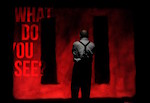
In English, you will learn multiple approaches to writing poetry through unconventional prompts, individual and group exercises, and revision workshops. Throughout this process you will also develop a command of poetic terminology by using it appropriately in spoken and written analyses of assigned poems, and by applying literary techniques to poetry of your own creation. A fundamental challenge of this project will be experimenting with different ways of representing an assigned concept or inventing an original concept through figurative thinking. You will read a variety of poems and the play Red (John Logan).
You will:
- Experiment with a series of written and visual responses exploring a concept, with the intention of discovering the freshest and most original ways to express it in written and spoken poetry, sound, and visual art (such as photography, film, and animation)
- Art Reflection - at SFMOMA, locate art that inspires awe and produce a reflection video on that art installation
Previous Student Productions:
Legacy Projects
Project 2 - Visual Narrative
The Visual Narrative Project asks Juniors,
"How well can you visually tell a structured story?"
Beginning with an exploration of prose fiction and the graphic novel, students practice communicating character and story arc through descriptive storytelling, narrative digital art, storyboards, films, and animations. Students deepen their technical communication skills by learning a variety of modern professional equipment and applications such as Wacom Digital Drawing Pads, lighting equipment, downshooters, Adobe Photoshop, Adobe Illustrator, Adobe Animate, Adobe Premiere Pro, Adobe After Effects, Avid Pro Tools, Propellerhead Reason, HTML/CSS, DragonFrame, and Google Apps.

In English, you will learn essential fiction writing techniques, with an emphasis on what carries a narrative visually and when and why a writer should “show, not tell.” The poetic thinking of the previous project will continue to serve as a tool for developing description, imagery, and figurative meaning. You will find inspiration and space to experiment with character and scene, plot structure, dialogue, point of view, and subtext through unconventional writing prompts and collaborative activities like “the writer’s room,” table reading, and revision workshop. You will read The Metamorphosis and fictional narratives of varying forms (flash fiction, short story, novella).
Using the thought process of a storyteller, you will:
- Analyze and interpret literary elements and structures in fictional narratives of varying forms (flash fiction, short story, novella)
- Create a short story with effective characterization, narrative perspective, plot, and stylistic elements
- Revise and edit for publication
- Translate short story to multimedia
- Write an extended reflection on communicating complex ideas through storytelling
Project 3 - Documentary
For the Documentary Project, Juniors develop their documentary and communication skills to answer the question,
"How do you creatively and truthfully portray
a significant person, group, place, idea, or issue in the community?"
For the Junior Documentary Project, students will portray an intriguing person, group, place, idea, or issue, gathering primary and secondary research sources to develop a distinct perspective about their subject’s significance in the community and/or world. Students will produce documentary magazine articles or books, animationed documentaries, documentary films, documentary websites, and photogalleries. This unit emphasizes narrative-style journalism.
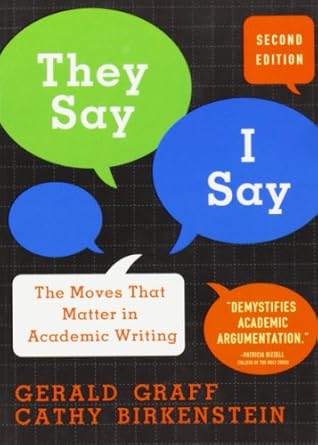
Project 3: Documentary Magazine Article
In English, you will learn how the writing and research processes function as the cornerstones of effective documentary media. During this unit, you will hone your expository essay skills, prepare for and conduct personal interviews, and write ethical documentary journalism which balances exposition, narrative, and research. Using poetic techniques and a creative nonfiction approach, your writing will entertain as well as inform your audience. Required reading includes various pieces of profile journalism, expository essays, and creative nonfiction. You will also use They Say / I Say: The Moves That Matter in Academic Writing as a handbook for using effective rhetorical thinking in your essay-based writing.
In Semester 1, you will:
- Analyze and interpret nonfiction writing and various pieces of documentary media (book, photography, animation, film)
- Use the research process to practice inquiry
- Write a documentary project proposal
- Present initial source material (photography, published works of interest relating to proposed documentary subject) for group feedback
In Semester 2, you will:
- Analyze and interpret nonfiction writing and various pieces of documentary media (book, photography, animation, film)
- Use the research process to practice inquiry and conduct personal interviews
- Synthesize various research sources, narrative elements, and photography in the creation of an original magazine article or book
- Revise and edit for publication
- Translate research and narrative content into documentary media
Previous Documentary Publications - Magazine Articles and Books
Project 4 - Explorations
For the Explorations Project, all Junior Freestyle students will explore his/her own passion and improve upon a particular skill set that addresses 21st Century Skills. Ultimately, each student will share his/her exploration with classmates as their Semester 2 Final. Students will have production time in all classes to complete this project.
Details:
- All productions must ultimately become digital so that we can have a digital archive of your work to share with the world on our website.
- Topics are self-chosen but must address one of our 21st Century Skills - see below.
- Topics are self-chosen but must be related to your Elective class (Animation / Design / Film) and approved by your Elective class teacher. Elective class time will be solely dedicated for working on your Explorations Project - here are the details.
- In English, you will learn to write a lyrical essay by synthesizing poetry, narrative, and research.
- In Digital Media, you will mix and produce music and your Explorations Website.
Explorations Websites
Explorations Videos - During Semester 2 Finals, you will share your newly learned skills and we will all celebrate and learn more about you and your passion(s). All students will create a presentation to use for the celebration and to also document the Explorations Project along with your Explorations Website.
Senior English 4
How does English at Freestyle compare to English at MVHS / LAHS?
Freestyle English builds the same core skills (e.g. close reading, academic writing, discussion, presentations, and research) but students demonstrate those skills through project-based work tied to media production and authentic audiences. We write for publication, create pitches, and build work for public exhibitions and portfolios. Instead of unit tests and essay cycles anchored to a single book list, Freestyle students repeatedly synthesize writing, visual thinking, and various forms of research in assignments such as magazine articles (the current Junior Documentary project), collaborative storytelling products (such as the current Senior Worldbuilding project), reflective essays, literary and rhetorical analyses, humor writing, short stories, poetry, creative nonfiction, personal essays, proposals, presentations, and portfolios. In short, we offer a more eclectic, creativity-focused English experience. Check out our galleries.
Canvas Course and Course Information Sheet
Prerequisites: None
Length: 1 year
Credits: 10 Units
UC/CSU: Yes "b"
Weekly workload estimate: 45-75 min 3 nights 3-4 hrs/wk
Materials:
- Writer’s Notebook: your preferred paper notebook and pen/pencil
- Charged laptop: your own laptop or school-issued Chromebook. Please be aware that there are no classroom laptops, so you will be without a computer if you forget to bring your own. You may not use your phone as a backup computer.
Course Texts:
- College Essay Essentials - Ethan Sawyer
- 1984 – George Orwell
- Slaughterhouse-Five - Kurt Vonnegut
- The Craft of Research — Wayne C. Booth, et al.
- Short works from Ursula K. Le Guin, Gabriel García Márquez, Octavia Butler, Ted Chiang, Becky Chambers, Isabel J. Kim, George Saunders, David Foster Wallace
- Various poems, essays, news articles, and samples of popular humor and satire.
Course Description:
English IV is a project-based Senior course that connects your reading, writing, and speaking to media projects for authentic audiences. You’ll read across genres—science fiction, solarpunk, magical realism, satire, poetry, essays, and journalism—to explore ideas about storytelling, power, ethics, language, memory, freedom, truth, technology, culture, and society. You will develop your writing practice by doing the following: crafting meaningful reflections (including a college personal essay you may use in applications); practicing research methods to investigate a specific worldbuilding topic or issue of interest; collaborating on a worldbuilding story treatment, slide deck, and persuasive pitch; analyzing how comedy works rhetorically; and scripting a short work of humor or satire. Throughout the year, you’ll hone your communication skills through Socratic discussions, the writing process, and presentations, aiming to think critically about complex texts and present ideas clearly, creatively, and professionally. The year culminates in a portfolio showcase tailored for a professional reviewer in a Freestyle-related field of your choice. Freestyle’s integrated, technology-focused curriculum will invite you to explore how language interacts with digital media, including generative AI. An additional goal of the course is to help you become an AI-aware communicator who knows when AI can support inquiry and the creative process, how to verify outputs, and when to rely on human judgment.
In this course, students study and compose literature and visual media which inspire their thinking and provide content for their integrated Freestyle media project work. Specifically, students will be able to:
- Conduct original research and apply the research process to develop compositions for defined audiences.
- Write and communicate professionally and persuasively through storytelling, essays, multimedia products, structured discussions, and presentations.
- Analyze a variety of literary texts, and use creative writing skills to communicate complex messages through fiction and nonfiction.
- Manage projects, collaborate, and problem-solve creatively.
English Senior Projects
Project 5 - Reflection
The Reflections Project challenges Seniors to explore a question that is at once simple and deeply complex:
"Who am I?"
Experimenting with personal as well as lyrical essay forms, students develop insights about their experiences and identities before translating those ideas visually in various kinds of image productions, video essays, websites, mandalas, and short animations. Students deepen their technical communication skills by learning more skills with a variety of modern professional equipment and applications such as Adobe Photoshop, Illustrator, After Effects, Premiere Pro, Substance Painter, Avid Pro Tools, Autodesk Maya, ZBrush, HTML/CSS/JavaScript, WordPress, and Google Apps.
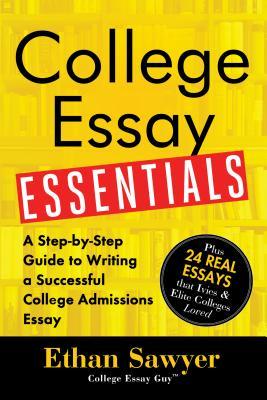
You will:
- Analyze personal essays and literary nonfiction
- Classify core values
- Express emotional vulnerability through style
- Structure/outline according to narrative and theme
- Evaluate qualities of effective personal essay writing (information, emotion, structure, craft)
- Reflect on works of art aligned with personal values
- Revise and edit for publication
- Translate personal writing to visual media
Previous Reflections productions
Project 6 - Narrative Perspectives
The Narrative Perspectives Project challenges Seniors with
"How well can you apply advanced narrative techniques to build a compelling story?"
By exploring various narrative points of view and experimenting with dialogue in their story writing, students develop more advanced storytelling techniques and ideas they apply in the creation of surreal compositions, movie posters, book jacket designs, screenplays, films, trailers, keyframe and motion caption animations, 3D layered art and videos, and JavaScript websites. Students deepen their technical communication skills by learning a variety of modern professional equipment and applications such as Adobe Photoshop, Adobe Illustrator, Photoshop, Premiere Pro, After Effects, Substance Painter, Avid Pro Tools, Autodesk Maya, ZBrush, and HTML/CSS/JavaScript with Visual Studio Code.
In Semester 1, you will:
- Analyze and interpret literary elements in a novel and shorter works
- Evaluate and organize research sources, including opposing viewpoints, to support a thesis
- Research with the purpose of gaining insight into a topic or issue related to a worldbuilding interest, gaining a sense of authority to explain it to an audience of collaborators and apply research knowledge in the process of building a fictional world and narrative.
- Revise and edit for publication
In Semester 2, you will:
- Collaborate in order to build a fictional world and narrative, including a standard narrative treatment for a feature-length film or comparable narrative product for a real world audience.
- Collaborate to develop character, plot, and defining visual elements of the fictional world.
- Collaborate to develop and present an industry-style pitch of the story concept with multimedia support.
Previous Worldbuilding productions
Project 7 - Humor
Project 7 - Humor and Satire (Comparison Essay, Script, Performance)
In English, you will learn how verbal, written, and visual comedic techniques work to entertain, to sell products, and to deliver a critical point about a topical issue. You will study humor across multiple mediums, including literary classics, sketch comedy, standup, print advertisements, television commercials, political cartoons, speeches, and songs. Through collaborative comedic processes such as improv and the writer’s room, you will develop ideas for your own humor project. The core reading selections for this unit include Slaughterhouse-Five (Kurt Vonnegut).
Using comedic and persuasive techniques, you will:
- Identify and apply terminology of verbal humor and satire in literature and various popular forms of comedy
- Analyze and interpret literary elements in literary works
- Conduct a rhetorical analysis of a work of humor
- Revise and edit for publication
- Apply techniques from humorists to an original comedy script
- Use humor script as the basis of a live or recorded performance
Previous Humor Productions:
Project 8 - Portfolio Showcase
The purpose of this final Showcase Project is for Senior students to celebrate and demonstrate their growth at Freestyle by presenting information, findings, and supporting evidence to convey a clear and distinct perspective as a digital artist. We challenge them to ask themselves:
How did you grow into the digital artist you are today?"
Using the professional vocabulary of the mediums, students will communicate a line of reasoning by creating a Showcase Website
- Strategic use of digital media - two Freestyle works (optional 1 non-Freestyle work) to feature the development of the artistic process from conception to completion
- Justify effective choices for meaning or style or design
- Demonstrate growth/discovery/development of passion, skills, talent, potential
In English, you will:
- Reflect on body of Freestyle project work and evaluate most appropriate pieces to present to a specific professional audience member
- Organize and present work and reflections to elicit focused feedback about learning processes and outcomes as well as professional applications and opportunities
- Reflect on professional feedback
- Conduct professional communication with a professional reviewer
Presentation logistics
- Presentations will occur simultaneously in each of the 5 classrooms at Freestyle grouped according to content (Film content in Film room, Design content in the Design room, etc.)
- Each student will be assigned presentation time based on content so that we can provide the appropriate professional panelists for your topic.
- Each student must invite 1 person to be part of the panel and each student can invite any family and friends to be part of the audience for the presentation.
- Tuesday May 25, 2021 - 1st presentation starts at 6 PM
- Wednesday May 26, 2021 - 1st presentation starts at 6 PM
- Thursday May 27, 2021 - 1st presentation starts at 6 PM
- Junior English Syllabus
- Senior English Syllabus
- Purdue OWL (Online Writing Lab) / MLA Formatting & Style Guide https://goo.gl/TYRqw4
- Gale Databases https://goo.gl/tGXJaU
- JSTOR Database https://www.jstor.org
- Poetry Foundation: https://www.poetryfoundation.org/
- Poetry Out Loud https://www.poetryoutloud.org
- Motion Poems https://www.motionpoems.org
- This American Life https://www.thisamericanlife.org
- The Stanford Storytelling Project https://goo.gl/haXVFc
- The Moth: True Stories Told Live https://themoth.org
- Ms. Katz - Materials for College Apps https://goo.gl/QMIzb9
Jason Greco
English Teacher
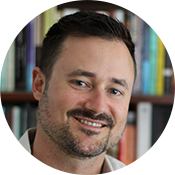
Jason Greco
Email: Jason.Greco@freestyleacademy.rocks or Jason.Greco@mvla.net Voicemail: 650-940-4650 x0092
Jason Greco is a graduate of Los Altos High School, UC Santa Cruz (B.A., Literature), and Cal Poly (M.A., English). His professional path includes tutoring in university writing labs, instructing freshman composition classes, co-producing film festivals with students, scoring Lit. & Comp. essays as an AP Reader, and teaching nearly every level of high school English. A fan of literature and film since his late teens, Mr. Greco finds himself at home among his fellow creatives at Freestyle. When he’s not writing his next short story or reading his lit mags, you can find Mr. G. at Bay Area sporting events, camping on the Central Coast, exploring New England, or fishing in southeastern Alaska.
